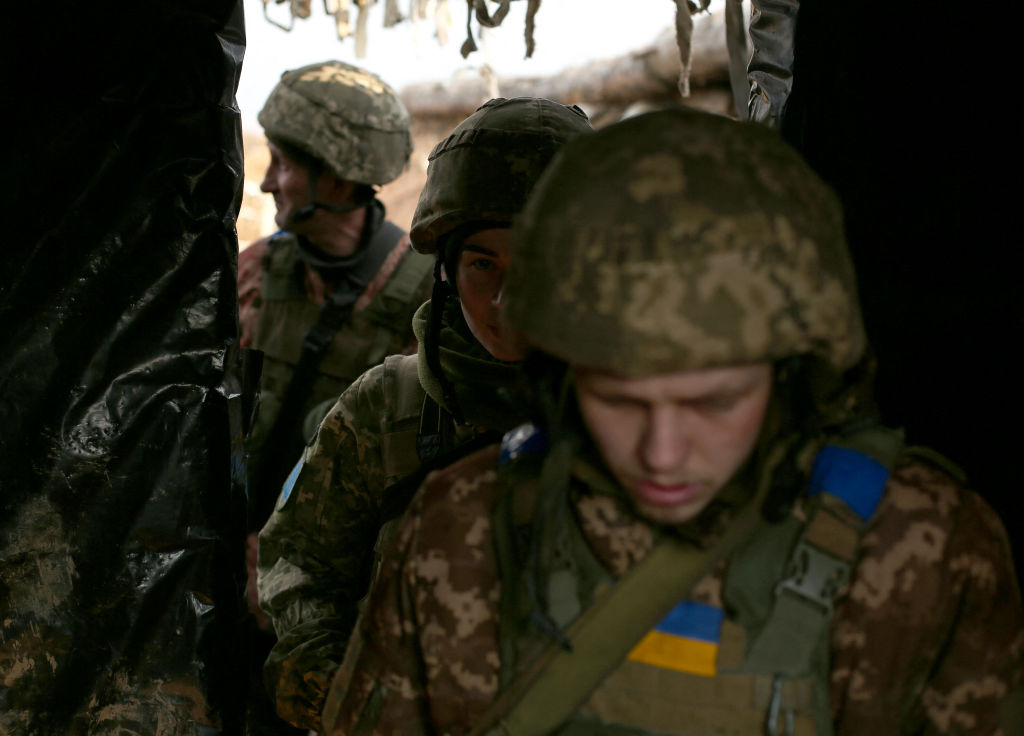White House describes Russian movements as an invasion after initially resisting term


A free daily email with the biggest news stories of the day – and the best features from TheWeek.com
You are now subscribed
Your newsletter sign-up was successful
After initial resistance toward doing so, the White House has decided to start referring to Russia's military movements in eastern Ukraine as an "invasion," The Associated Press, NPR, and The Wall Street Journal report.
Though the administration had, at first, held off on using such rhetoric to see what Moscow might actually do, it now feels the situation on the ground now warrants it, AP writes, according to a U.S. official.
"We think this is, yes, the beginning of an invasion," Principal Deputy National Security Adviser Jonathan Finer told CNN on Tuesday morning.
The Week
Escape your echo chamber. Get the facts behind the news, plus analysis from multiple perspectives.

Sign up for The Week's Free Newsletters
From our morning news briefing to a weekly Good News Newsletter, get the best of The Week delivered directly to your inbox.
From our morning news briefing to a weekly Good News Newsletter, get the best of The Week delivered directly to your inbox.
"An invasion is an invasion and that is what is underway," he added, noting, however, that "Russia has been invading Ukraine since 2014."
As recently as Monday, American officials had declined to use that term to describe the situation, despite Russian President Vladimir Putin ordering troops to areas in Ukraine controlled by Russian-backed separatists, Politico reports.
In response, President Biden is expected to announce new sanctions against Moscow on Tuesday, which will work in tandem with those being prepared by the European Union and the U.K.
A free daily email with the biggest news stories of the day – and the best features from TheWeek.com
Brigid Kennedy worked at The Week from 2021 to 2023 as a staff writer, junior editor and then story editor, with an interest in U.S. politics, the economy and the music industry.
-
 5 calamitous cartoons about the Washington Post layoffs
5 calamitous cartoons about the Washington Post layoffsCartoons Artists take on a new chapter in journalism, democracy in darkness, and more
-
 Political cartoons for February 14
Political cartoons for February 14Cartoons Saturday's political cartoons include a Valentine's grift, Hillary on the hook, and more
-
 Tourangelle-style pork with prunes recipe
Tourangelle-style pork with prunes recipeThe Week Recommends This traditional, rustic dish is a French classic
-
 The mission to demine Ukraine
The mission to demine UkraineThe Explainer An estimated quarter of the nation – an area the size of England – is contaminated with landmines and unexploded shells from the war
-
 The secret lives of Russian saboteurs
The secret lives of Russian saboteursUnder The Radar Moscow is recruiting criminal agents to sow chaos and fear among its enemies
-
 Is the 'coalition of the willing' going to work?
Is the 'coalition of the willing' going to work?Today's Big Question PM's proposal for UK/French-led peacekeeping force in Ukraine provokes 'hostility' in Moscow and 'derision' in Washington
-
 Ukraine: where do Trump's loyalties really lie?
Ukraine: where do Trump's loyalties really lie?Today's Big Question 'Extraordinary pivot' by US president – driven by personal, ideological and strategic factors – has 'upended decades of hawkish foreign policy toward Russia'
-
 What will Trump-Putin Ukraine peace deal look like?
What will Trump-Putin Ukraine peace deal look like?Today's Big Question US president 'blindsides' European and UK leaders, indicating Ukraine must concede seized territory and forget about Nato membership
-
 Ukraine's disappearing army
Ukraine's disappearing armyUnder the Radar Every day unwilling conscripts and disillusioned veterans are fleeing the front
-
 Cuba's mercenaries fighting against Ukraine
Cuba's mercenaries fighting against UkraineThe Explainer Young men lured by high salaries and Russian citizenship to enlist for a year are now trapped on front lines of war indefinitely
-
 Ukraine-Russia: are both sides readying for nuclear war?
Ukraine-Russia: are both sides readying for nuclear war?Today's Big Question Putin changes doctrine to lower threshold for atomic weapons after Ukraine strikes with Western missiles
